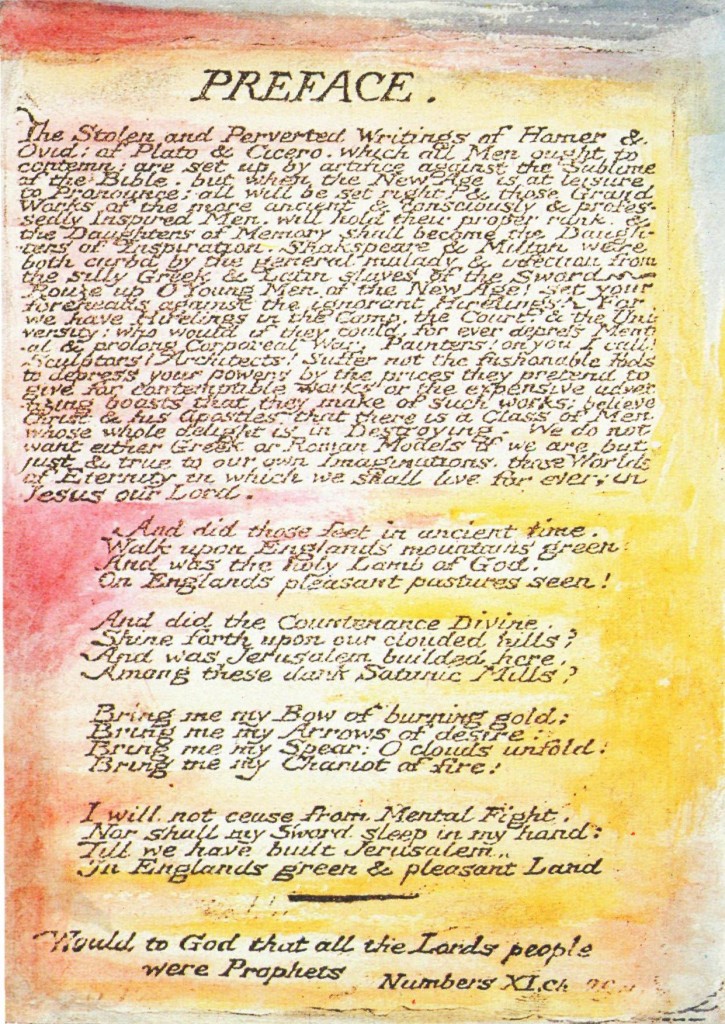The Preface to Blake’s Milton
James Pollock’s new poem about the young Norrie in the latest issue of Agni here.
“I have had sudden visions.”
Bloor Street, Toronto, 1934
3 a.m. in the all-night diner, dizzy
with Benzedrine and lack of sleep, old books
and papers scattered across the table.
With his pen, his Dickensian spectacles,
his pounding, driving Bourgeois intellect,
he charges into a poem by William Blake
with two facts and a thesis, cuts Milton
open on the table like a murdered corpse
and spins it like a teetotum until
he’s put each sentence through its purgatory
and made the poet bless him with a sign:
thus (though perhaps one can picture this
only from a point outside of time)
he sees the shattered universe around him
explode in reverse, and make the flying
shards of its blue Rose window whole again.
